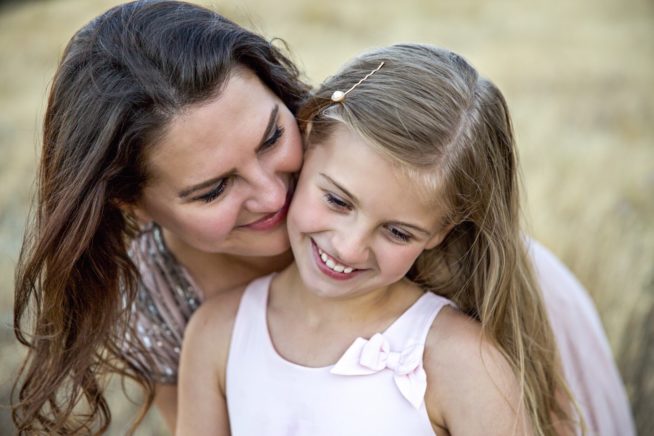As a parent, how important do you believe it is to be aware of the choice of words that you use with your child in each and every moment?
I remember one day I was caring for two children and we were driving somewhere. I saw a deer and mindlessly said “girls, quick, look out “Jane’s” window, there is a deer!” I never gave that choice of words another thought, until some weeks later I was with those same two girls driving once again, when suddenly the older sister said “Look, there’s a horse!” She was pointing at a horse, which could be seen out of the car window where her younger sister was sitting. Her sister then, with irritation, yelled “Stop looking out MY window!”
That may seem rather benign, but when we speak mindlessly, we speak “from the past.” We speak from “recorded” parts of ourselves that just speak for us.
I sometimes call that “lazy speaking.” I know that may sound weird, but it’s true. How many times have you said something that you had no idea why you said it or knew after it came out of your mouth that it wasn’t what you wanted to say? How many times have you said “Oh my gosh, I just sounded like my mother!”?
My oldest daughter (now 36) told me that for a long time, she was so afraid to brush her teeth because she thought she might accidentally swallow toothpaste. She said I told her that if she swallowed toothpaste, she would die. Now I don’t honestly recall saying something like that, I truly don’t, but that doesn’t mean I didn’t say it. That’s the problem with speaking mindlessly. In speaking mindlessly, it becomes almost impossible to recall correctly what was actually stated, because we were not fully present when those words were coming out of our mouths.
In this situation, I may have mindlessly said something like “be careful not to swallow toothpaste because it could make you sick.” That comment was most likely mindlessly said to me somewhere along the line in my past, and in that moment with my daughter, it was mindlessly repeated by me. My daughter then possibly perceived that moment as “I could die if I swallow toothpaste.” When that same daughter got her driver’s permit, my mind started creating “worse case scenarios” that could happen to her. That’s a favorite “pastime” of the mind – it loves to identify with the worst.
It doesn’t take a rocket scientist to see, from these examples, how every comment registers in a child’s mind and how vital it is that we have our attention when we speak. Children believe what they hear as truth.
A comment like “John always takes a long time to tie his shoes,” becomes a belief that he is slow at doing things. Or a comment like “Hurry up, we need to get going,” becomes a belief in a child that there is a need to rush through life.
So wouldn’t it make sense that if a child “records” and believes everything that we say and do as a trusted authority, that nothing “new” can take place unless there is an awareness of ourselves in the use of our words and actions in every moment with them? The past breeds the future from generation to generation when there isn’t an awareness of ourselves in the moment.
In order to be aware of our choice of words that we use, we must slow down and wait before speaking. A good practice is to count to three before speaking. That way, you will be able to be aware of the pushiness of “the past” that wants to speak for you. Wait instead and let that wave roll on by….
Exercise for the week:
Practice counting to three before speaking to your child. This can be a very difficult thing to do, believe it or not. So, see if you can catch yourself (even if only after the fact) saying something to your child mindlessly, without being aware of it coming out of your mouth. If that happens and something is said to them, perhaps with force and fear, become present to yourself, aware of yourself in that moment, and then share with your child from that place, what you intended to properly communicate. Allowing yourself to “miss the mark” teaches the child that it is ok for them to “miss the mark” as well. All of it is an intended part of our journey in learning about these past parts of ourselves that we can see in no other way except through our awareness of them.
 Terri Knuth (a/k/a Terri Poppins) started an on-call nanny business in 2009 after a 31-year career as a paralegal because she felt a certain calling to work with children. She has cared for well over 100 families with children of all ages, including doing respite care for special needs children. In her free time, she enjoys hiking, biking, swimming, and attending classes at the Life of Learning Foundation, a center for self-study. You can find more information on her site: www.terri-poppins.com.
Terri Knuth (a/k/a Terri Poppins) started an on-call nanny business in 2009 after a 31-year career as a paralegal because she felt a certain calling to work with children. She has cared for well over 100 families with children of all ages, including doing respite care for special needs children. In her free time, she enjoys hiking, biking, swimming, and attending classes at the Life of Learning Foundation, a center for self-study. You can find more information on her site: www.terri-poppins.com.
Image courtesy of Irina Murza.












